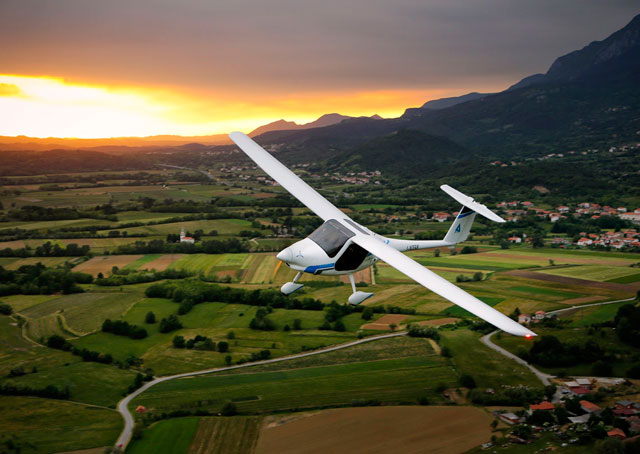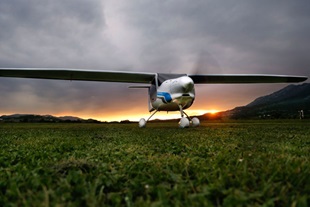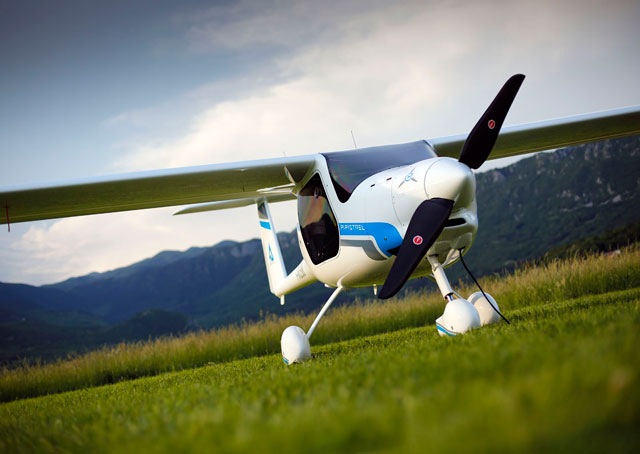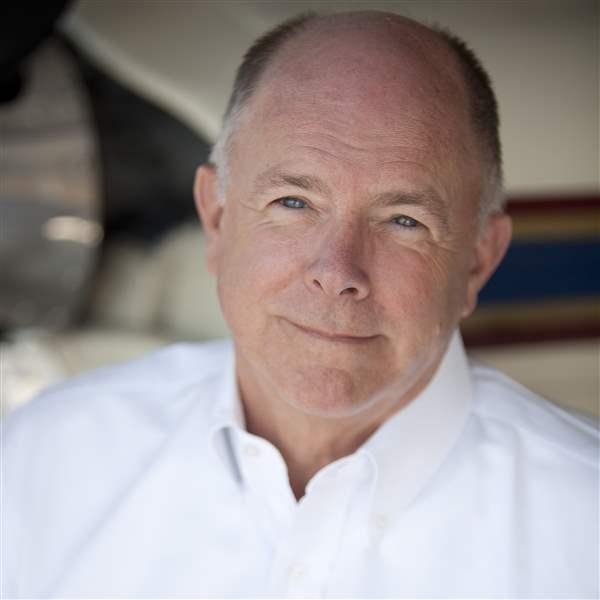Editor's note: In an interesting twist on the quest to be the first to cross the English Channel in an electric aircraft, an electrically powered Cri-Cri piloted by Hugues Duval crossed the channel July 9. Read more here.

In a strange turn of events, German electrical giant Siemens has abruptly told the Pipistrel Aircraft Co. that it cannot use its Dynadyn 60-kilowatt (80-horsepower) motor in its Alpha Electro trainer. The Alpha Electro has been in development for more than two years, has secured European certification, is pursuing light sport aircraft certification in the United States, and has secured deposits for what was supposed to be a Siemens-powered airplane.
The drama kicked off on July 5, when Siemens learned of a French Pipistrel dealer’s plan to fly an Alpha Electro across the English Channel and back. The event was set to happen Tuesday, July 7. It would have been a first for an electric-powered airplane—and evocative of Louis Bleriot’s first Channel crossing in July 1909.
In a letter to Pipistrel general manager Ivo Boscarol, Siemens said that its Dynadyn electric motor was not designed, tested, or approved for over-water flight. It went on to deny any overwater flying, ordered Pipistrel to stop “any further use” of the motor, and demanded the return of the motor to be used in the crossing. Siemens Head of e-Aircraft Frank Anton cited “severe safety concerns” and said that “Pipistrel is obliged to immediately stop any further use of the motor.”
Presumably, this means that Pipistrel must now find and test a different motor for the Alpha Electro program. This will obviously push back deliveries.
Master Pipistrel USA distributor Michael Coates, in an e-mail, theorized that there was more to the issue than safety concerns. “Our testing over land demonstrated that we can take off from France, land in England, and return to France and still have a remaining 25 percent battery capacity which validated the safety of this event,” Coates said.

“I have now found out that it’s the intention of Airbus to fly the e-Fan over the English Channel on Friday [July 9], making Airbus the first electric-powered aircraft to cross the English Channel and receive the notoriety and recognition that comes from this achievement,” Coates said. “…and it’s important to note, they are only going one way and not a return trip on the same charge.”
According to Coates, the Siemens denial represents an effort by Airbus to pressure Siemens into the move, thus ensuring that the E-Fan gets all the glory. Airbus has manufactured a prototype of its E-Fan, an electrically powered twinjet. The airplane has been making show tours lately, and is the first of a series of electrically powered designs that Airbus has stated is part of its “road map” for the future, culminating in electrically powered airliners.
Asked to comment on the charge that Airbus pressured Siemens into denying Pipistrel the motor specifically for the purpose of preventing the cross-Channel flight of the Alpha Electro, thus allowing Airbus’ E-Fan to make the flight instead, Anton cited safety demands again. “We always liked to drive forward the development of the electrical flying with Pipistrel and did that proactively,” he wrote in an email to AOPA. “In spite of all commitment Siemens would never pull its own safety demands aside. There was no agreement upon the realization of the flight between Pipistrel and Siemens.”
Boscarol issued a statement in response to Siemens’ original letter, saying in part, “Pipistrel never broke any contract with Siemens,” a hint of potential legal developments. He also said “it is already possible to order and very shortly receive the Alpha Electro—but of course not with a Siemens motor anymore.”
CORRECTION: An earlier version of this story incorrectly identified the power of the Dynadyn engine. We regret the error.

Further coverage of the Pipistrel Alpha Electro is scheduled for a future issue of AOPA Pilot magazine.



